from 2,640 reviews
12 Days and 11 Nights
Specific Tour
40 people
chinese, English, german
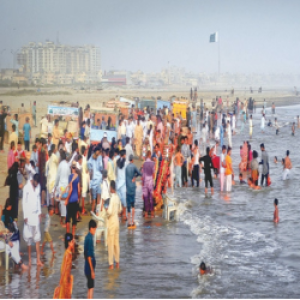
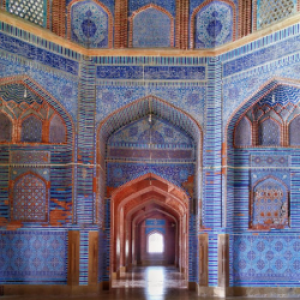
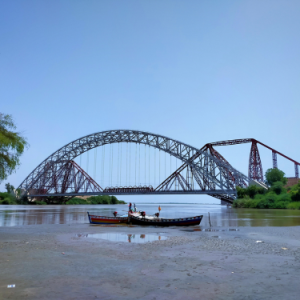
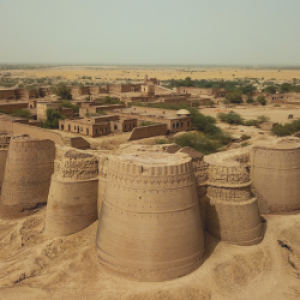

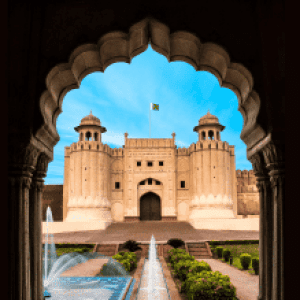
The Indus Civilization Tour also known as the South Pakistan tour offers a unique experience distinct from our other offerings. This exceptional journey takes you from the vibrant streets of Karachi to the historical and cultural depths of Punjab, immersing you in a rich tapestry of Sufi heritage, desert fortresses, bustling bazaars, and lively cities.
Indus Civilization Tour. starting in Karachi, you’ll explore one of Pakistan’s most dynamic and historic cities. From there, you’ll travel through landscapes dotted with World Heritage ruins and dazzling Sufi mausoleums. Discover the sacred tombs of revered mystics and poets, visit the ancient ruins of Mohenjo-daro, and explore the Cholistan Desert to marvel at the grand Derawar Fortress. In Multan, known as the City of the Sufis, you’ll delve into the spiritual heart of the region before concluding your journey in Lahore. Lahore, the cultural hub of Punjab, offers a deep dive into the historical and religious legacies of the Mughal, Sikh, and British Empires amidst its vibrant and bustling atmosphere.
Pakistan holds a special place in our hearts, and with over two decades of experience running tours here, we have a profound understanding of the country’s political and cultural complexities. Leveraging this extensive knowledge, we are committed to providing innovative and authentic travel experiences, utilizing top-notch guides, transport, and accommodations to ensure a memorable adventure.
One of the most intriguing aspects of the Civilization is its urban planning. The cities of Harappa and Mohenjo-Daro featured well-laid-out streets, advanced drainage systems, and complex architecture. This level of sophistication was unparalleled in its time, reflecting the highly organized nature of this society.
The Indus Civilization is renowned for its unique script, which remains undeciphered to this day. This script, found on seals and artifacts, hints at a system of writing that has yet to be fully understood. The mystery of the Indus script continues to captivate historians and linguists.
The civilization thrived on trade, with evidence of contacts extending to Mesopotamia. They engaged in long-distance trade, exporting items like pottery, beads, and textiles. Their economy was primarily agrarian, with the cultivation of wheat, barley, and cotton playing a significant role.
The Civilization’s religious beliefs and practices are still a matter of debate. However, various artifacts suggest a reverence for deities, with some experts proposing connections to later Hindu traditions. The art of the Civilization, including sculptures and pottery, showcases intricate craftsmanship and a deep appreciation for aesthetics.
Around 1900 BCE, the Indus Civilization began to decline, possibly due to factors such as environmental changes, invasions, or shifts in trade routes. By 1500 BCE, the once-flourishing cities were abandoned, and the civilization gradually faded into obscurity.
The Civilization holds immense significance as one of the cradles of human civilization. Its achievements in urban planning, trade, and culture were far ahead of its time. While it may not have left behind a decipherable written record, the artifacts and ruins provide invaluable insights into the ancient past.
Archaeological excavations and ongoing research continue to shed light on the Indus Civilization. New findings have expanded our knowledge of their social structures, daily life, and the factors that led to their decline. This civilization remains a subject of fascination for scholars and enthusiasts alike.
For those interested in experiencing the history and culture of the Civilization firsthand, there are several sites in Pakistan that are open to tourists. The most famous among them are Mohenjo-Daro, a UNESCO World Heritage site, and Harappa. These archaeological sites provide a glimpse into the remarkable achievements of this ancient civilization.
The Indus Civilization Tour in Pakistan represents a remarkable chapter in the history of human civilization. Its advanced urban planning, enigmatic script, and contributions to trade and culture make it a topic of enduring interest. As we continue to uncover its mysteries, the legacy of this ancient civilization continues to shine through the sands of time.
Upon arriving in Karachi today, you will be greeted and transferred to your hotel. After settling in and freshening up, your afternoon will start with a tour of the city. Your first stop will be the Shrine of Abdullah Shah Ghazi, born in Medina in 720 AD and venerated as Karachi’s patron saint. Following this, you’ll have the chance to visit Clifton Beach, explore the National Museum, and see the Mausoleum of Muhammad Ali Jinnah.
After breakfast this morning, you'll depart from Karachi and drive to the city of Hyderabad. Along the way, you'll visit the World Heritage site of Makli Hill, renowned for its vast necropolis, one of the largest in the world. You will also explore the Shah Jahan Mosque in Thatta, an exquisite example of Mughal architecture from its golden era.
From Hyderabad, your journey continues through the north-western regions of Sindh province, heading towards the historic city of Larkana. Along the way, you’ll stop at the shrines of the renowned Sufi saints Lal Shahbaz Qalandar and Abdul Latif Bhittai. These stops offer an opportunity to delve into the lives and legacies of these revered mystics, philosophers, and poets. After your explorations, you'll proceed to Larkana for an overnight stay on the banks of the River Indus.
Larkana is the gateway to one of the largest and most ancient settlements of the Indus Valley Civilization. The site of Mohenjo-daro, meaning "Mound of the Dead," dates back to the 19th century BC and is a UNESCO World Heritage Site. You will have the opportunity to explore the Mohenjo-daro Museum, which offers insights into this remarkable civilization. Afterward, you will drive to Sukkur. If time permits upon arrival, you may have the chance to visit the local market and experience the vibrant atmosphere of the area.
Today’s journey takes you on a full day's drive to Bahawalpur, a city that was once the center of an independent princely state established in 1802 by Nawab Mohammad Bahawal Khan II. En route, you will pass through Uch Sharif, a historic site believed to have been founded by Alexander the Great in 325 BC, situated at the confluence of the Indus and Chenab Rivers. Continuing on, you will complete your journey to Bahawalpur.
After breakfast, you will embark on a drive into the remote expanse of the Cholistan Desert to visit the impressive Derawar Fort. Constructed by the Rajput Bhati clan, this fortress commands the desert landscape with its 40 towering bastions, each standing over 30 meters high. Explore the fort and the royal tombs of the Bahawalpur Nawabs before returning to Bahawalpur for your second night.
This morning, you'll embark on a tour of Bahawalpur, exploring its historic and cultural landmarks, including the Noor Mahal and the Farid Gate, which is surrounded by a lively local market. After your visit, you'll depart the city and continue your journey towards Multan, situated along the banks of the Chenab River.
Multan, often referred to as Madinat-ul-Auliya or the City of the Sufis, is renowned for its numerous Sufi shrines scattered throughout the city. Today, you'll visit some of its most significant monuments, including the shrines of Shah Rukn-i-Alam, Bahauddin Zakariya, and Shams Tabrez. Additionally, you'll have time to explore the bustling Old Bazaar, immersing yourself in the vibrant atmosphere of this historic city.
From Multan, you'll continue your journey to Lahore, the capital of Punjab and the largest Punjabi city in the world. Along the way, you'll stop at the renowned archaeological site of Harappa, where you can explore the remnants of a Bronze Age fortified city dating back to 2600 BC. Arrive in Lahore later in the day and settle in to experience the rich cultural heritage of this vibrant city.
Today, you'll explore Lahore, a city with a rich history as the capital of both the Mughal and Sikh empires, and a key location during British rule in Punjab. Your tour will feature a visit to the Lahore Museum, which showcases a remarkable collection of cultural and historical artifacts. You'll also see the impressive Badshahi Mosque, renowned for its red sandstone architecture, and the adjacent Lahore Fort. In the afternoon, head into the walled city of Lahore to experience its vibrant daily life. Wander through the bustling bazaars and visit the recently restored Shahi Hammam and the Wazir Khan Mosque, renowned for its stunning architecture and intricate tile work.
Lahore stands as a pinnacle of Mughal architecture, offering a rich tapestry of magnificent Islamic monuments, impressive relics from the British era, a bustling old city bazaar, and a vibrant modern character. It ranks among Pakistan's must-see destinations, including UNESCO World Heritage sites like the Jahangir Tomb and Shalimar Gardens. This afternoon, you'll drive to the Wagah border to experience the dramatic and unique Wagah Border Ceremony, where you'll join the enthusiastic crowds to witness this extraordinary and patriotic event.
After Breakfast You will be transferred to the airport in time for your onward flight.